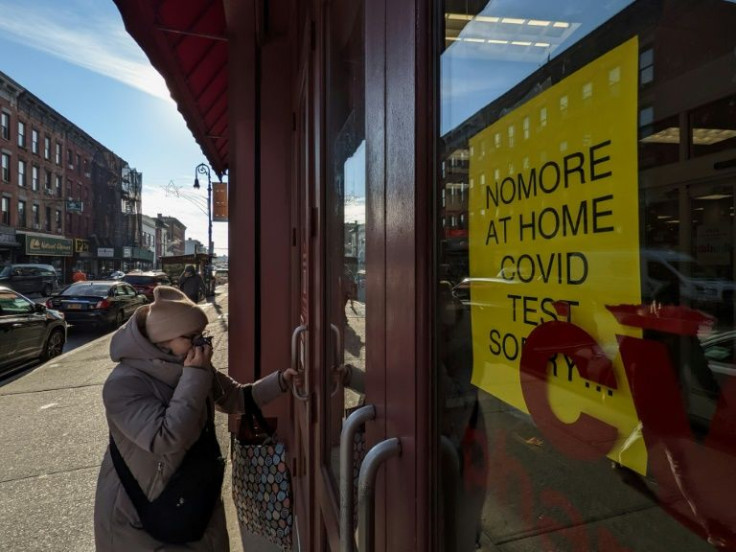White House Says Insurers Must Cover 8 At Home COVID Tests Per Person, Per Month
The White House announced Monday that U.S. insurers will be required to pay for eight at-home rapid tests per individual per month starting Jan. 15.
Those with insurance can either be covered upfront to pay for the at-home tests or users will be reimbursed by their insurance company after purchase. This also applies to those with group health plans. There are no cost-sharing requirements like “deductibles, co-payments or coinsurance, prior authorization, or other medical management requirements.”
If plans and insurers make tests available upfront to preferred pharmacies and retailers, they are required to cover the costs of those tests even if the person purchasing them is out of network. In these cases, there are $12 allotted per individual test.

“Testing is critically important to help reduce the spread of COVID-19, as well as to quickly diagnose COVID-19 so that it can be effectively treated,” said Center for Medicare and Medicaid Services administrator Chiquita Brooks-LaSure.
For a family of four, this means 32 free tests per month, but only those tests that are approved by the Food and Drug Administration. However, there is no limit on the number of tests if those tests are ordered and administered by a health care provider following an individualized clinical assessment, which applies to those who have underlying medical conditions.
The White House’s order ensures “insurers and group health plans to make tests free for millions of Americans. This is all part of our overall strategy to ramp-up access to easy-to-use, at-home tests at no cost,” said Health and Human Services secretary Xavier Becerra.
The Biden administration also announced that it would purchase half a billion tests to send to people in the U.S. for free, a separate program from the one requiring insurers to provide tests for free.
© Copyright IBTimes 2025. All rights reserved.






















